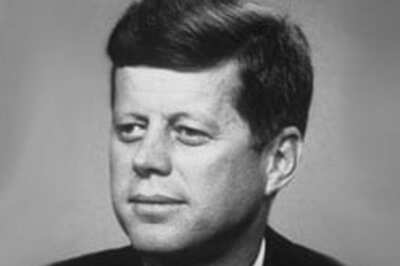
views
CHENNAI: In a bid to hone the organ transplant and harvesting system in Tamil Nadu, there may well be transplant coordinators in all district centres soon.According to Dr Suresh Singhvi, Chief Liver Transplant Surgeon at MIOT Hospitals, such a move will ensure that more hearts, livers and corneas are harvested and put to use. Dr Singhvi also reasoned that all doctors had been trained well enough to pronounce a person ‘brain-dead’. “As soon as this happens, if the family consents, the organs can be harvested, transported and put to gainful use across the districts,” he said. So far, liver transplants have been done only in a handful of centres, only in Chennai, with Stanley Medical College being the only public sector hospital conducting the complex transplant.Tamil Nadu’s Organ sharing network has been hailed as a model system, with several states borrowing its framework to set up their own. “There is still a long way to go, if we wish to reach the stage countries like UK are at now,” rued Dr Prithvi Mohandas, Joint MD - MIOT Hospitals. Dr Prithvi is also the founder of the Indo-British Health Initiative, which will be hosting a CME programme called GIBHICON 2012, this weekend. The programme will have 60 liver specialists from India and the UK and offer credit points for medicos.The UK has done about 1,000 transplants last year alone, while TN has done only about 248 since 2008.One of the factors that is holding transplants back is the cost. While MIOT charges `20 lakh (if you get a cadaver organ) some hospitals even charge up to `75 lakh . “It’s a pity that insurance companies don’t provide cover. But there’s hope, as we persuaded one company to foot part of the expenses recently. If we do enough surgeries, over a period of time all companies will come around and it may even find its place in the state insurance scheme,” said Dr Ge-orge M Chandy, Director of MIOT’s Advanced Centre for Gastrointestinal and Liver Diseases. “We conducted a study recently, which revealed that 30 per cent of people in Che-nnai have “fatty” livers. Tha-t’s a danger sign and it would be best if people chose to give it some attention while they still can,” he said.




















Comments
0 comment